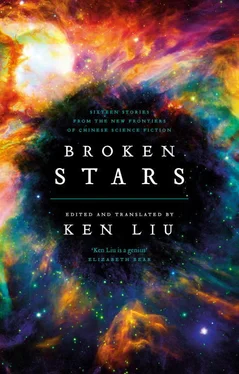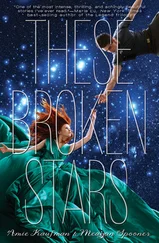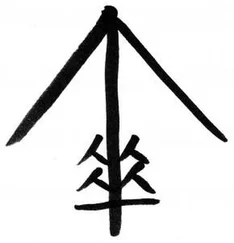On the last day of my sojourn, the owner of the B&B took me hiking up a hill to see the blooming azaleas. Red, yellow, pink, purple—the flowers were so romantic, so wild. Suddenly, my fear was gone. I was ready to go back to face Fang Rui and tell him the truth.
I’m going to die. Maybe Fang Rui is at the airport right now, waiting with the ring. I’ll never get to tell him my true feelings. Everyone’s instinct is to shape the presentation of the self so as to maintain a consistent mirage in front of others. His romanticism and my rationalism are both masks that we fear to take off. Maybe he wasn’t even aware of it, but his public, melodramatic proposal had been an act designed to cement his reputation as a romantic. My escape wasn’t part of his script, but he must have expected it on some level. To maintain his self-image, he has to wait for me, and even come to the airport to put on another show, hoping to change my mind. But fundamentally, he loves himself far more than he loves me—he doesn’t actually care what I want.
It’s human nature to deceive others through actions and words, but the brain box forces the implanted to be subjected to constant self-reflection: Are my thoughts really my thoughts? Will others discover the unvarnished monologue going through my mind? Is the image others have of me consistent with my real self? Even though the brain box is capable of preserving only the last five minutes, the sensation of being monitored is ever-present, inescapable.
I was naive when I agreed to the experiment. Like the other youthful fools careless of the remote prospect of minds unmasked after death, we didn’t realize that we would have to face a life of endless self-reflection and be shackled by such heavy chains of self-doubt.
The plane’s dive is accelerating. My ears ache. An intensifying drone fills my head. How many minutes are left? Will these thoughts be recorded over? Will my brain box be recovered? Who will decode it? Will he know Fang Rui and tell him everything?
It’s no longer about love. The very existence of the brain box changes everything.
3.
“Mr. Fang! Are you all right? We had to stop the experiment due to irregularities in your pulse and blood pressure.”
Fang Rui opened his eyes. His awareness returned to his body from its remote journey. Whiteness everywhere: white walls, white lab coats, and bright white lights. He wasn’t on the plane. He had awakened from his nightmare.
“Here, drink some water. You need to take a break and recover. We won’t continue the experiment unless you insist.”
“No,” Fang Rui said, his lips trembling. “Shut it down…. I’ve… I’ve learned everything. Zhao Lin… she was ready to accept my proposal as soon as she returned. Her final thoughts were devoted to my well-being, to how to minimize my sorrow. Oh, she’s always been so foolishly logical. I miss her so much, so much….”
His voice faded as hot tears overflowed his eyes. But he knew his heart would never ache again.
A fiction writer, screenwriter, and columnist—and recently, founder of Thelma Mundi Studio, a multimedia SFF IP incubator—Chen Qiufan (a.k.a. Stanley Chan) has published fiction in venues such as Science Fiction World , Esquire , Chutzpah! , and ZUI Found . His futurism writing may be found at places like Slate and XPRIZE.
Liu Cixin, China’s most prominent science fiction author, praised Chen’s debut novel, Waste Tide (Chinese edition 2013; English edition scheduled for 2018), as “the pinnacle of near-future SF writing.”
He has garnered numerous literary awards, including Taiwan’s Dragon Fantasy Award and China’s Yinhe and Xingyun Awards. In English translation, he has been featured in markets such as Clarkesworld , Pathlight, Lightspeed , Interzone , and F&SF . “The Fish of Lijiang” won a Science Fiction and Fantasy Translation Award in 2012, and “The Year of the Rat” was selected by Laird Barron for The Year’s Best Weird Fiction: Volume One . More of his fiction may be found in Invisible Planets .
“Coming of the Light” is one of my favorite stories by Chen, and it captures the anxiety, dynamism, and absurdity of life in contemporary Beijing as a member of the techno-social elite. “A History of Future Illnesses,” on the other hand, is far darker and more caustic. Its Hieronymus Bosch–like visions of the future are dominated not so much by an all-powerful, know-nothing brutish state, but an apathetic, amoral, ahistorical populace for whom the end of history is both a blessing and curse. As always, even in the darkest passages of his tales, Chen injects flashes of humor that I can’t be sure should be properly read as hope or despair.
0.
My mother told me about a Buddhist monk she and I met while shopping on my first birthday.
The monk caressed my head—back then as bald as his—and chanted a few lines that sounded like poetry.
After we returned home, my mom recited a few fragments to my father. Dad, who had had a few more years of schooling than my mom and completed middle school, told her that the lines weren’t poetry, but from a Buddhist koan. Only by consulting the village schoolmaster did he finally discover the origin of those fragments, words which would come to determine my life.
As clouds drift across the sky, so Master in the Void is seen.
Dust clings to everything but what is true.
Over and over the monk queries: “What does your visit mean?”
Master points to cypress which in courtyard has taken root. [22] The koan behind the verses is attributed to Zhaozhou Congshen (778–897 CE), a Chan (origin of the Japanese “Zen”) Buddhist master, sometimes considered the greatest master of the Tang Dynasty. In the koan, a monk repeatedly asks the meaning behind Master Zhaozhou’s visit, and each time Master Zhaozhou replies, “The cypress tree in the courtyard.” Thanks to Anatoly Belilovsky for the verse rendering used here.
They thought these lines must contain some deep meaning, and so they renamed me Zhou Chongbo, which means “Repeat-Cypress.”
1.
I’m sitting in a steamer. I’m a dumpling being steamed.
Everyone keeps on inhaling and exhaling and then staring at the white smoke coming out of everyone else’s mouths, like cartoon characters with thought bubbles drifting over their heads containing logical musings, naked women, or frozen obscenicons. Then the smoke dissipates, revealing coarse, swollen faces. The air purifier screams as though it’s gone mad, and the young women sitting in chairs along the wall silently put on their face masks, slide their fingers across the screens of their phones, and frown.
I don’t need to look at the time to know it’s past midnight. My wife won’t even respond to my WeChat messages anymore.
I was dragged here at the last minute. My wife and I were on our way home after taking a stroll when we encountered a man dressed in an army coat on the pedestrian overpass. With a booming voice that startled both of us, he said, “The Quadrantid meteor shower will come on January 4. Don’t miss it—”
I waited for him to finish with what is known to us marketing professionals as the “call to action”—e.g., “Join the Haidian Astrology Club,” “Call this number now!,” or even pulling out a portable telescope from his pocket and telling me “Now for only eighty-eight yuan”—which would have made this a reasonably well-executed bit of street peddling.
But like a stuck answering machine, he started again from the beginning: “The Quadrantid meteor shower will come on January 4….”
Читать дальше












